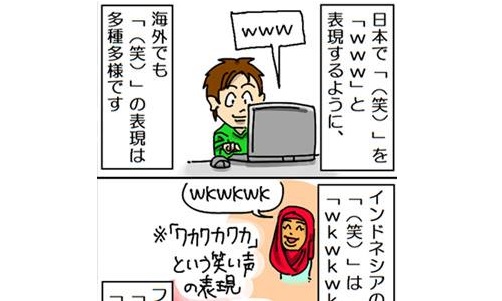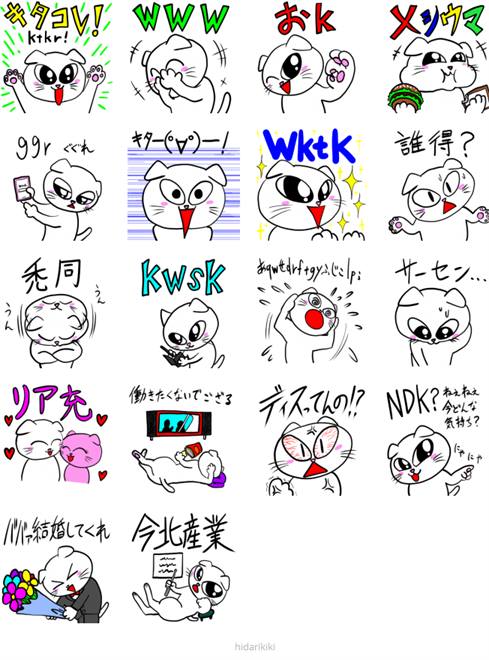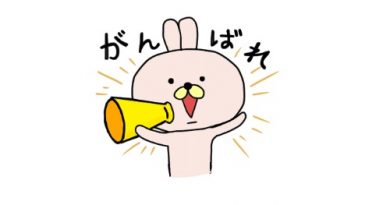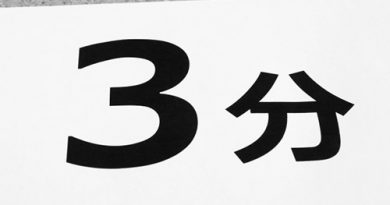Japanese slangs on the Internet
Ever since its birth, the Internet has proven to be appealing to young people. Especially, a distinctive language system was created for ネット中毒 (Netto chūdoku – people who use the internet a lot or net-a-holics). Sometimes older people completely don’t understand those different and unique words. In this article, Learn Japanese Daily will introduce to you some Japanese slangs on the Internet, as well as their origins and meanings. Don’t be left behind, let’s step up your game by getting into this world full of intriguing words.
Contents
日本語インターネットスラング (Nihongo intānettosurangu) Japanese slangs on the Internet
Group 1: Acronyms
In fact, this is the group of Japanese slangs on the Internet that you will stumble on and use every time and everywhere. There are acronyms in every language and the same with Japanese. Especially in games when long sentences become a hassle, acronyms are the best option in this situation. Don’t be surprised because even though they are written in the latin alphabet, their origins are entirely from Japanese. Here are some common acronyms:
W: A short way of writing of 笑う (warau – smile) hay ワロタ(warota – lol, laugh, laugh out loud).
WKTK (Sometimes WK only): Can you guess its meaning just by its sound? This acronym is pretty well-known among young people. It’s from the phrase ワクワクテカテカ (Wakuwakutekateka) and it means excited, or to shake with excitement.
KWSK: An acronym of 詳しく(kuwashiku – detail). It means also means “care to explain? care to elaborate?”.
GGRKS: An acronym of ググレカス(Gugurekasu) or sometimes written only with GGR (ググる- guguru), (る here acts as a verb, similar with する, 走る), people use it to answer those who always ask for information. The who phrase means: Google it yourself, lazy bum.
ktkr: From 来たこれ(kitakore) people use it to describe something they’re looking forward to.
55: people can easily guess it as number 5 is pronounced similarly with ご(go). This word is frequently used by gamers. When a game starts, you can see a lot of number 5 in replacement of ゴー、ゴー、ゴー(Gō, gō, gō – go go go).
4649: sometimes written as yr or 46, we can understand it means よろしく(Yoroshiku) “please”, based on its pronunciation.
888: Number 8 (hachi) its pronunciation is similar with ぱちぱちぱち (pachipachipachi – clapping sound) it shows the approval by “clapping’.
If you’re using social media, you must be familiar with these words:
顔本 (Kaohon) a combination of 顔 (face) và 本 (book) this is the Japanized version of Facebook.
フォロー (Forō) you use this word when you follow someone else’s account on a social media such as: Facebook, twitter or Instagram. Celebrities often have a lot of フォロワー (Forowā – followers).
クラスタ (Kurasuta – Groups on social media). If you admire a star, you can create a fan page to attract those with the same interest. Or you can create a group of people who love cooking, learning languages, travelling…
誰得 (Dare toku?) many people have trouble understanding these words. In fact, 誰得 is a short form of 誰が得するんだよ (Dare ga tokusuru nda yo – who will benefit from it/who is this for?) and can be answered with 俺得(oretoku – for me).
ツイ or つい( tsui): To chat. This word is an influence from Twitter. You might see ツイッター中毒 (Tsuittā chūdoku – Twitter addicts) or ツイート(Tsuīto – To whisper, gossip).
ズッ友 (ずっとも – Zuttomo) A combination of ずっと (zutto- forever) và 友達 (tomodachi – friend) and is used by girls when they write them on photos that their friends are tagged.

Group 3: Japanese slangs used in conversations on the Internet.
Apart from those acronyms, some Japanese slangs on the Internet are also widely used.
こn: People say it to greet each other, in replacement of こん (Kon) and is used in various situations.
おk: OK
おめ and あり: Similar with 55, these two words are commonly used in conversations between gamers. Imagine when a game is over and read this dialogue:
Gamer 1: プレーヤー2、おめ (Purēýā 2, ome – congrats, gamer 2)
Gamer 2: あり ^^ (Ari – thanks)
As you can see, あり is a short form of ありがとう (Arigatō) and ome is a short form of おめでとう (Omedetō)
乙: pronunciation: otsu and means ”good job”. This is a short form of お疲れ様 (Otsukaresama), to compliment someone for their efforts and hard work.
オワコン: (owakon) means “old fashion”, “out of date”, indicating the trends are not popular anymore, or people who are not up-to-date. It is originated from 終わったコンテンツ(Owatta kontentsu – old information, not up-to-date).
オワタ (owata): from 人生オワタ(Jinsei owata) people say it when they have finished something, similar with banzai! Some people use it when something unfortunate happens, it means “Oops”, “game over”.
お花畑 (Ohanabatake): Literally means “a flower garden” but as slang it’s meant to describe those who are dreamers (disapproving), unrealistic, always see things positively.
Learn these Japanese slangs on the Internet because you might need them to understand the person you are talking to as well as to be able to answer when you talk to someone on the Internet. Show them you are a pro in Japanese.
This Japanese slangs on the Internet system is a method young people use to express themselves without having to use many words. In this century, where social media rules the world and languages are changing every day, you should update yourself as many as possible Japanese slangs on the Internet. They will help you adapt to your environment faster and won’t be a “オワコン” to your friends. Hope you will have a great Japanese arsenal under your belt and will always be confident in conversations.
You want to improve on your Japanese? See other articles in section: How to speak Japanese


